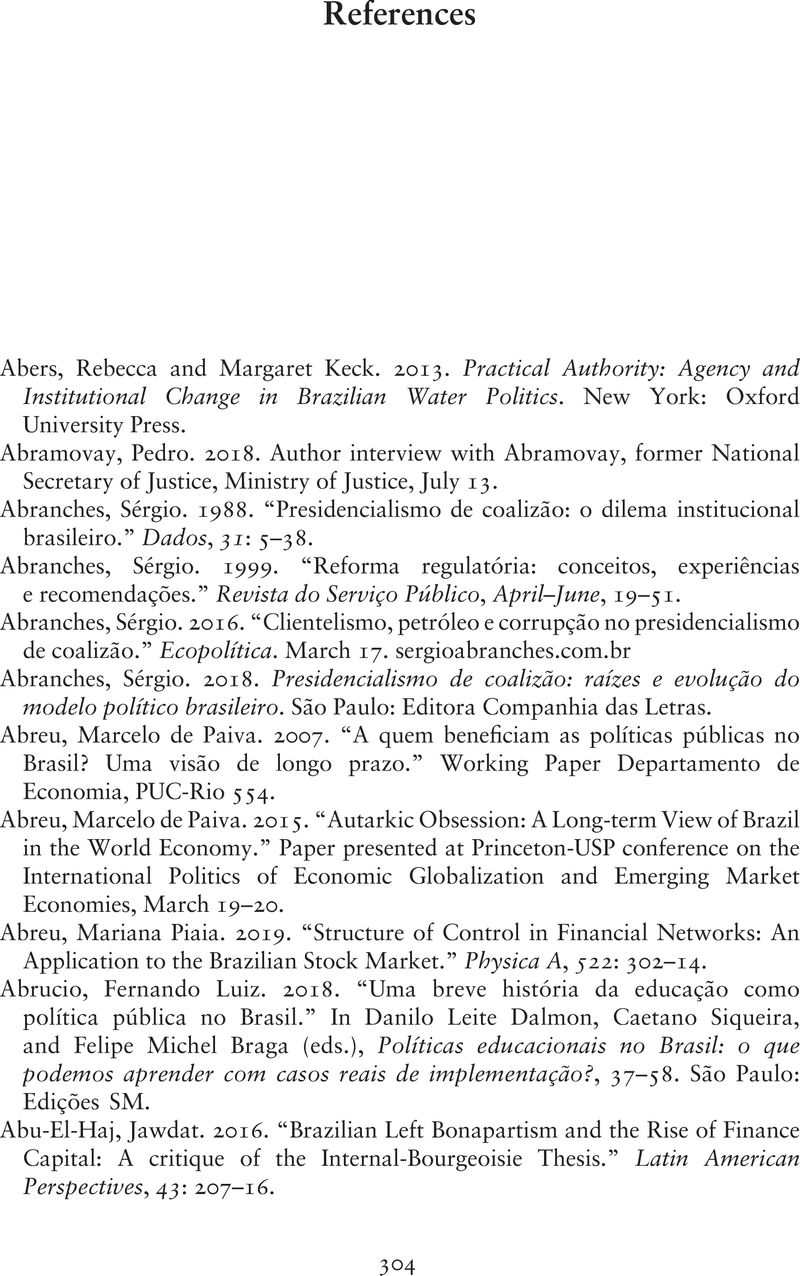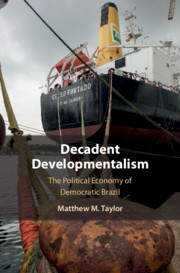Book contents
References
Published online by Cambridge University Press: 04 November 2020
Summary

- Type
- Chapter
- Information
- Decadent DevelopmentalismThe Political Economy of Democratic Brazil, pp. 304 - 354Publisher: Cambridge University PressPrint publication year: 2020

